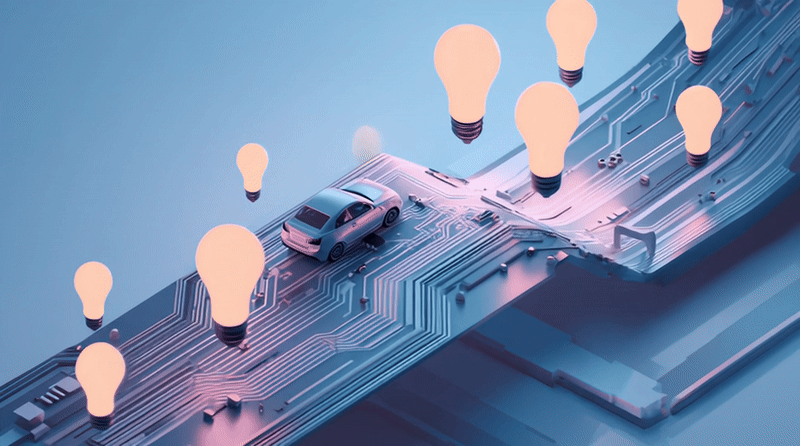Don’t Slam the Brakes on Technological Progress
Embracing change is worth the cost in disruption.
Some US conservatives want to slam the brakes on progress, quite literally. At the recent US National Conservatism conference, Senator Josh Hawley of Missouri declared: “Only humans ought to drive cars and trucks.”
His techno‑scepticism runs deeper than opposing driverless vehicles. “Every so‑called innovation the tech class has delivered in recent decades operates as a power transfer … from us to them,” he warned. “Us” meaning the honest “common man”. “Them” being Silicon Valley transhumanist elites and their job-killing code.
We must take this urge to ban driverless cars and smother AI seriously. Not because Hawley is right, but because his anxieties are commonly held here. A recent survey by the Schwartz Reisman Institute found just 8 per cent of Britons are strongly positive about artificial intelligence, putting us last except for Australia. Only France and the US had higher negative sentiment than the UK too (33 per cent). On driverless cars, just 22 per cent of us say we’d feel safe in one. This is fertile ground for populists looking to appeal to displaced workers in our own politics.
Fears of job loss from new technology aren’t irrational. But trying to resist the tide can smother the benefits of new tech while making any eventual adjustment harder. Still, politicians can’t help themselves. Last year, in opposition, Labour’s Louise Haigh warned that automated vehicles could repeat “the ravages of deindustrialisation”. That’s Labour-speak for “government intervention required”. The tool of choice, of course, is typically “safety” regulation.
This instinct isn’t new. In 1865, parliament passed the Locomotive Act, capping self-propelled vehicle speeds at 2mph in towns and 4mph in the countryside, while requiring each be preceded by a man waving a red flag. Branded as a safety measure, it was backed by the horse-drawn carriage and rail lobbies. Maybe it spared a few pedestrians, but it certainly stunted any early car industry. Innovation was sacrificed to protect incumbents, with safety the excuse.
The US mis-stepped too. For decades, cities required human lift operators even after automatic elevators became safer and cheaper. A few thousand jobs were saved, with higher costs for building owners and slower productivity in sectors based in tall buildings. Like red flag laws, the aim of this safety regulation was really to preserve jobs in aspic.
The Hawley instinct would repeat this error. Trials of autonomous vehicle systems like Waymo in the US show 70–90 per cent reductions in crash rates compared with human drivers. In the UK, where human error is a factor in 88 per cent of collisions, industry modelling suggests autonomous vehicles could save 3,900 lives and prevent 60,000 serious injuries by 2040, with just 20-24 per cent market penetration. Studies predict less congestion, lower fuel use, and cheaper deliveries and logistics. And then there’s time freed. The average Brit spends over 120 hours per year behind the wheel, which is ripe for reclaiming for work or leisure. All these efficiencies would boost downstream sectors.
Yet the public isn’t sold. Polls show most Britons still consider driverless cars unsafe. That gives our own Hawleys an opening. Regulation to slow innovation always attracts both well-meaning safety worriers and affected workers with political allies. Labour has passed enabling legislation for automated vehicles, but seems to be dragging its feet on rollout. Meanwhile, the diffuse benefits of improved safety and efficiency get downplayed and delayed.
As AI spreads through the economy, such political battles will proliferate. Someone will always stand ready to highlight the freak accident, the displaced worker or the imperfect chatbot. And certain politicians will promise to protect workers affected.
That’s why it falls to those not wedded to the status quo to state the obvious: yes, automation is disruptive. But it’s also the path to safer roads, cheaper goods, and higher productivity. Hiding behind a modern red flag is no answer.
Progress that is delayed amounts to progress denied.
This article was originally published by The Times on 9/17/2025.




Maybe its time the combined driverless car industry -in this case- do a better job presenting the advantages and job opportunities that will be created iso focussing mostly on their 'incredible' technological advancements. People are predominantly emotional animals, afraid of change. So iso inward looking, industry needs to be outward looking eg what's in it for 'the common man' and pre definition, the politicians who depend on their votes. Time to change their approach!
I read many stories by users of Tesla's FSD (automated driving) that show how the car saved their lives. I myself love using it as it makes driving a lot easier. I arrive at my destination relaxed rather than frazzled. But these don't make headlines. Crashes and deaths make headlines.